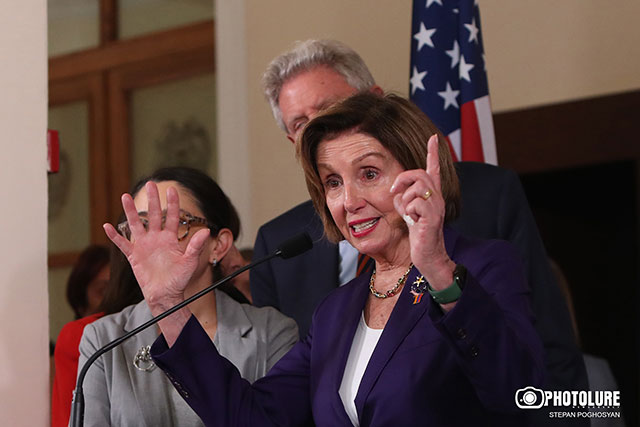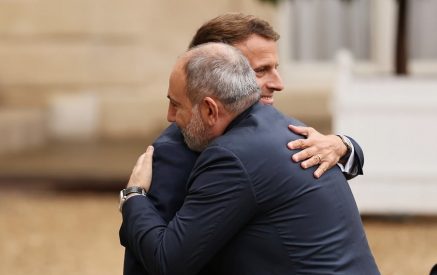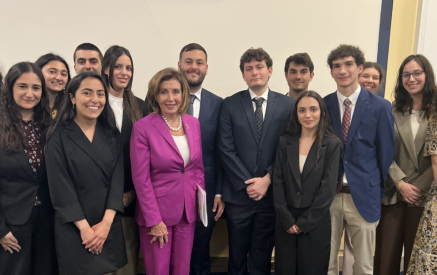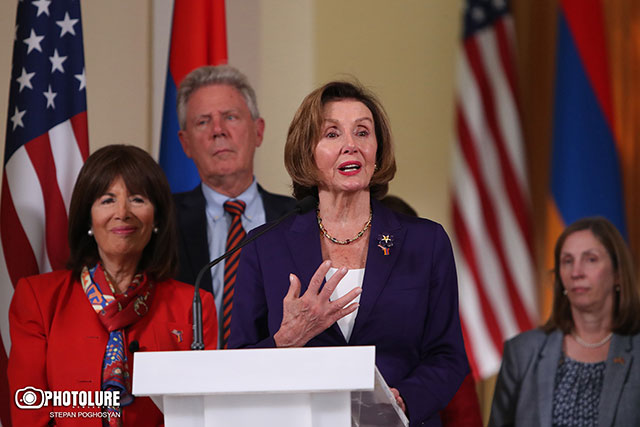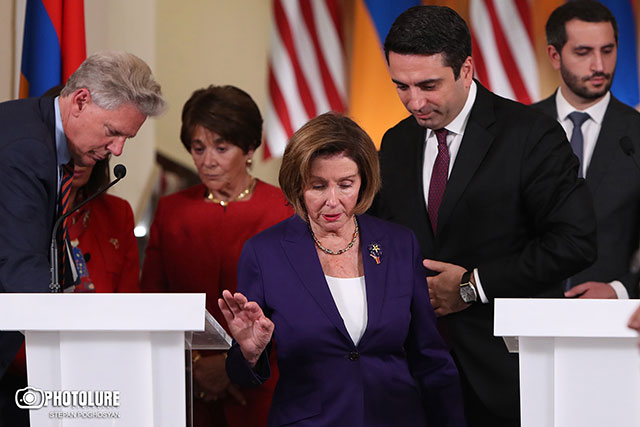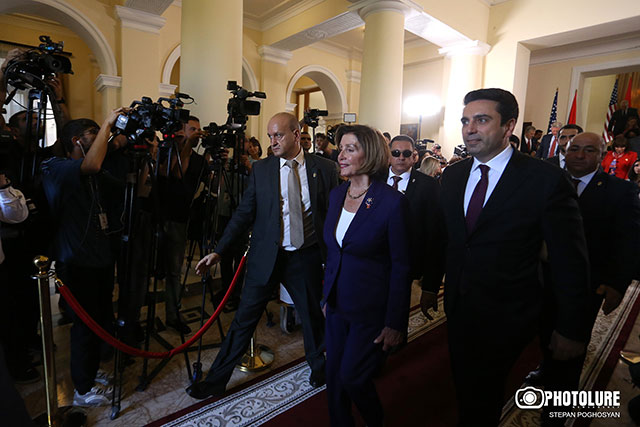by Azatutyun.am
Pelosi Condemns Azerbaijan’s ‘Attacks On Armenia’
The speaker of the U.S. House of Representatives, Nancy Pelosi, accused Azerbaijan of launching “illegal and deadly attacks on the Armenian territory” as she visited Yerevan on Sunday just days after border clashes between Armenian and Azerbaijani forces.
“We in our delegation and on behalf of [the U.S.] Congress strongly condemn those attacks, which threaten prospects for a much-needed peace agreement,” Pelosi said after talks with Armenian parliament speaker Alen Simonian.
Read also
“We continue to watch the situation closely and we continue to support a negotiated, comprehensive and sustainable settlement to all issues related to Nagorno-Karabakh conflict,” she told reporters.
Pelosi also effectively blamed Turkey, Azerbaijan’s closest ally, for the fighting that broke out on the Armenian-Azerbaijani border late on September 12 and left more than 200 soldiers from both sides dead.
“I mentioned in the meeting earlier that for a long time, for decades, in the Congress and in the bipartisan way we have tried to hold Turkey as well as Azerbaijan responsible for the Nagorno-Karabakh conflict,” she said.
The U.S. State Department also appears to have held Baku responsible for the worst escalation of the conflict since the 2020 war in Karabakh. In a September 13 phone call, Secretary of State Antony Blinken urged Azerbaijani President Ilham Aliyev to “cease hostilities” and voiced serious concern over “reported strikes against settlements and civilian infrastructure inside Armenia.”
Speaking at a joint news conference with Pelosi, Simonian said that the fighting was brought to a halt late on September 14 thanks to U.S. mediation.
Azerbaijani forces reportedly launched large-scale attacks at several sections of the long border, seizing some of the Armenian army posts there. Yerevan says Baku resorted to military action in a bid to force it to fully accept the Azerbaijani terms of a bilateral peace treaty and to open an “exterritorial corridor” connecting Azerbaijan to its Nakhichevan exclave. Baku claims that the hostilities were triggered by Armenian cross-border “provocations.”
In recent days Armenian leaders — and Simonian particular — have criticized Armenia’s ally Russia for what they see as a lack of military and political support. They have stressed the significance of Pelosi’s trip to Armenia in that context.
Pelosi, who was due to meet with Prime Minister Nikol Pashinian later on Sunday, said that the Armenian speaker and other lawmakers shared with her their disappointment with Moscow’s stance. While reaffirming the U.S. commitment to “advancing security, economic development and democratic institutions in Armenia” she would not say what kind of military assistance, if any, Washington could provide to the South Caucasus nation.
“On the defense side, we are listening to what the needs are, rather than coming here and saying this is what we are prepared to do,” explained the House speaker.
Representative Frank Pallone, one of the three pro-Armenian U.S. lawmakers accompanying Pelosi on the trip, stressed that the congressional delegation is “not suggesting anything about” Armenia’s geopolitical orientation.
“We’re going to work to see what can be done by the United States to help with Armenia’s security without reference to Russia or the Russian [security] arrangement,” said the New Jersey Democrat.
In Simonian’s words, the Armenian government would welcome “meaningful assistance” from the United States “in all possible directions.” He did not elaborate.
Pelosi’s delegation also comprised two other Democratic lawmakers: Jackie Speier and Anna Eshoo, who both are of Armenian descent. Like Pelosi, Speier and Eshoo represent California constituencies with sizable Armenian American populations, a fact emphasized by the House speaker.
“So this is a family visit for us,” said Pelosi. She noted that she planned the trip “before the assault on the border of Armenia took place.”


















































